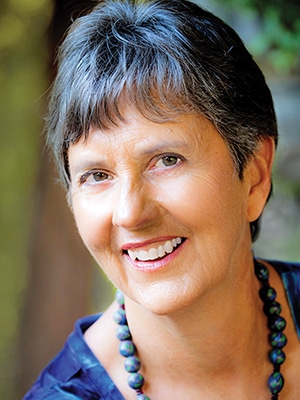Sivananda Bahamas Blog
Expand Your Horizons …
Our Blog
Resilience: Rewiring the Brain for Well-Being
Mindfulness is the cornerstone of resilience, says Linda Graham, a marriage and family therapist, mindfulness teacher, and expert on the neuroscience of human relationships who presents at the ashram. "I would start," she says, "with the capacity to cope with difficulty or disaster. Resilience calls on the qualities we want — courage, kindness, responsiveness, generosity."
With enough mindfulness practice, she writes in her book, Bouncing Back: Rewiring Your Brain for Maximum Resilience and Well-Being, "we arrive at our own embodied understanding of the wisdom teachings about conditioning and getting stuck in patterns. We perceive the universality of suffering, the direct experience of the interconnectedness of all beings and the interrelatedness of all events ..."
While mindfulness and observation-reflection create the self-awareness and expanded brain capacities that allow us to create the changes in our behaviors critical to resilience, she writes, the other essential catalyst for brain change — empathy — requires skillfully interacting with other people to generate the connection and self-acceptance.
There are five elements of empathy that help mature the prefrontal cortex and will help strengthen it throughout our lives:
- Resonance: picking up the "vibe" of others
- Attunement: feeling your way into another person's experience
- Empathy: conveying a shared understanding of the meaning of an experience
- Compassion: caring in the face of struggle or suffering
- Acceptance: coming to terms with what has been, so you can cope moving forward
Resonance is what we're made for, she says, and the body doesn't even have to be conscious to feel its effect.
During one of her workshops at the ashram, Linda described the "negativity bias," an innate bias linked to psychology and evolution. "We respond to it and remember negative more than positive just as we pay attention to threat more than peace," she says.
But even negative feelings have a purpose. "They're a call to action," she says. "The most difficult feeling to welcome is shame. We believe we're flawed, unworthy. It erodes part of us that feels we're capable of change."
"Self-acceptance heals shame," she says, citing the American novelist Zora Neale Hurston: "Love makes your soul crawl out of its hiding place."
There is nothing more powerful in the outer world than to cancel your inner critic and inner judge, she says. Her book offers an exercise to create a better choice through new conditioning.
Here are the steps:
- Identify a habitual negative reaction — impatience, boredom, temper, rejection — that you would like to use as a cue to practice rewiring your brain.
- Identify the new response you would like to substitute — acceptance, calming down, pausing to reflect, seeing the good.
- Identify a positive code word or phrase you will use to break the circuit and cue yourself to change the channel in your brain. For example: Allow, Explore, It's Okay, Pause. The choice of word is up to you, what's important is that you use the cue as soon as you identify the trigger so you can avoid falling into your conditioned reaction. You might choose a word that cues a feeling of resilience or well-being: Love, Learn, Breathe, Slow Down. Practice the cue words while you're in the actual state so that your brain conditions itself to shift to that state when it registers the cue.
- Each time the trigger arises, practice the new pattern of response: say your cue word and shift to the state you've chosen as the new experience. Do this as many times as needed for the new pattern to become the new habit.
- Notice as the old pattern fades away into the background and the new pattern becomes more automatic. You have experienced an actual rewiring of the brain.
Here's another simple practice. "We all want contentment, peacefulness, a way of regulating the nervous system," Linda says. "We are all looking for ways to heal, and one of the best ways is to seek gratitude, kindness, compassion, and serenity."
"As Meister Eckhart said, 'If the only prayer you said in your entire life was thank you, it would suffice.'"

Linda Graham, MFT, integrates modern neuroscience, mindfulness practices, and relational psychology in her nationwide trainings on resilience and well-being. She is the author of Resilience: Powerful Practices for Bouncing Back from Disappointment, Difficulty, and Even Disaster, and she publishes the weekly Resources for Recovering Resilience, archived on her website.








